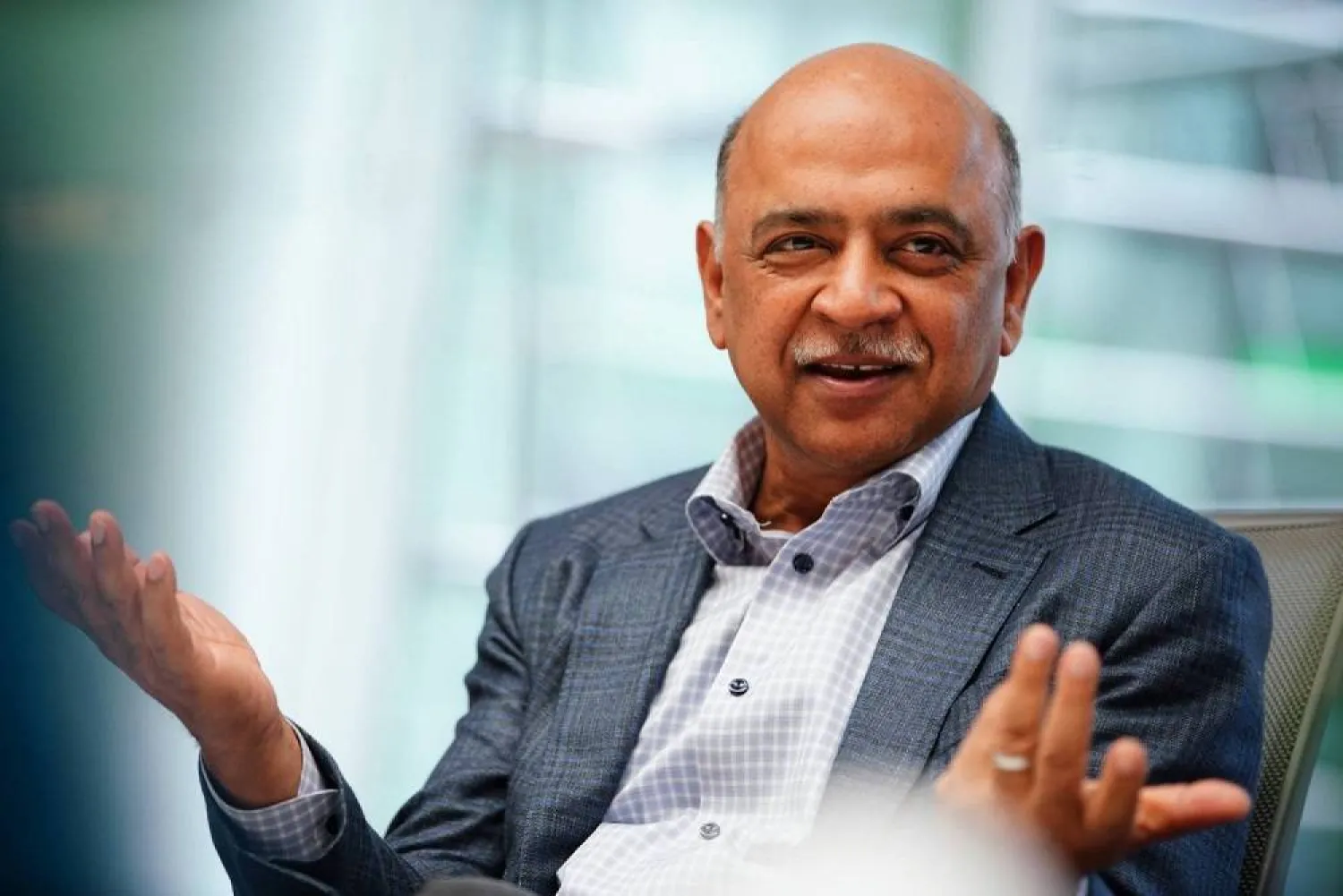IBM Chairman and CEO Arvind Krishna said Saudi Arabia was rapidly emerging as a global leader in the field of artificial intelligence.
In an exclusive interview with Asharq Al-Awsat, Krishna noted that his company, a global leader in the field of hybrid cloud, artificial intelligence, and consulting services, announced plans to invest more than $200 million in talent and infrastructure by establishing a new software center in Riyadh, in support for Saudi Vision 2030, which aims to transform the Kingdom into a leading global technology hub.
Krishna pointed out the strategic importance of artificial intelligence, explaining that its economic impact in the Middle East is estimated at about $320 billion by 2030. He stressed that Saudi Arabia would reap great benefits, with gains reaching $135.2 billion, which represents more than 42 percent of the size of the economy related to new technology.
He also underlined the “regional benefits” of establishing the new software center in Riyadh, saying that Saudi Arabia “is rapidly emerging as a world leader in the field of artificial intelligence, and the new IBM center represents a major achievement.”
The center will work to drive innovation in the fields of data, AI, and sustainability programs, with the aim of accelerating skills development and creating high-quality jobs for young IT professionals in Saudi Arabia. The center’s focus on digital innovation, product development, management and design will stimulate the creation of globally exportable solutions, enriching the technological infrastructure in the Kingdom.
IBM's recent projects in Saudi Arabia also include expanded cooperation with Riyadh Air and Salam Telecom. Krishna promised that the cooperation with Riyadh Air aims to “revolutionize travel experiences” and support the company’s inaugural flight in 2025 with advanced solutions.
The IBM president pointed out that Watsonx, the company’s latest data and AI platform, is designed to improve productivity, simplify workflow, and automate tasks across industries. He noted that introducing Arabic language models into the new platform represented an important step towards enhancing the use of large Arabic language models in various sectors.
According to Krishna, the rapid technological development has decreased the lifespan of skills acquired today by half within seven years, which highlights the importance of continuous learning.
For this reason, IBM’s work in Saudi Arabia includes partnerships aimed at raising the skills of up to 100,000 Saudis in the digital sector, he stated.
He added that his company, through its cooperation with educational and governmental bodies, was able to provide training courses and research accelerators, to support the Kingdom’s goals of becoming a global digital leader.
Krishna said he was confident that IBM’s significant investment in the new software center in Riyadh not only reflects a long-term commitment to technological advancement in the Kingdom, but also paves the way for pioneering innovations that could shape the future of the global technology landscape.









